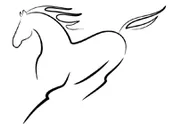Hearing your horse experience breathing difficulties can be scary and a major cause for concern. Breathing difficulties can take a toll on your horse’s performance, and make day to day activities and tasks difficult for them. If your horse is having a hard time breathing, an equine veterinarian in Ocala can help. At Winner’s Circle Equine Veterinary Service, we have years of experience performing equine respiratory evaluations to horse owners in Ocala, FL, and the surrounding areas. Here is some more information about equine respiratory evaluations.
Evaluation
Our veterinarian will begin by observing your horse and taking notes. They will need some preliminary information as well, including the age of the horse, the horse’s contact with other animals, and how long their breathing problems have been going on for. Our veterinarian will then move on to examining the lower respiratory tract of your horse.
Our veterinarian will listen to the lungs of your horse, and will typically apply a re-breathing bag. This bag is placed over the nose and mouth of your horse to encourage deeper breathing so our veterinarian can hear your horse breathe more easily. From there, our veterinarian will move on to an endoscopy. An endoscopy involves the use of an instrument that has a small camera at the tip of a long scope. The scope is gently inserted into your horse’s nasal passage to allow our veterinarian to capture images of the airway. These images will be examined later to see what might be causing your horse’s breathing problems, whether it be an infection, nasal passage damage, or something else.
Typically, your horse will be mildly sedated for this procedure. Following the procedure, our veterinarian can begin to determine the cause of your horse’s respiratory problems. Common causes of breathing problems in horses include dorsal displacement, inflammation due to infection, tumors, sinus problems, and more. Whatever the cause, it is important to have the examination done at the first signs of breathing difficulty to reduce the risk of further complications.
Treatment
Treatment varies depending on the cause of the breathing condition. If the cause is determined to be dorsal displacement, for example, a “tie-forward” will be performed. This procedure moves the larynx forward, so it sits over the soft palate in the correct position, allowing normal breathing. In other cases, your horse may require the use of anti-viral or anti-inflammatory medicine to fight off infection. Sometimes, the solution is as simple as seasonal allergy medication. Our equine veterinarian in Ocala will work with you to provide the best care possible for your horse.
Schedule an Appointment Today
For more information on equine respiratory evaluations, or to schedule an appointment, call us at (706) 202-5476 or visit us online.

